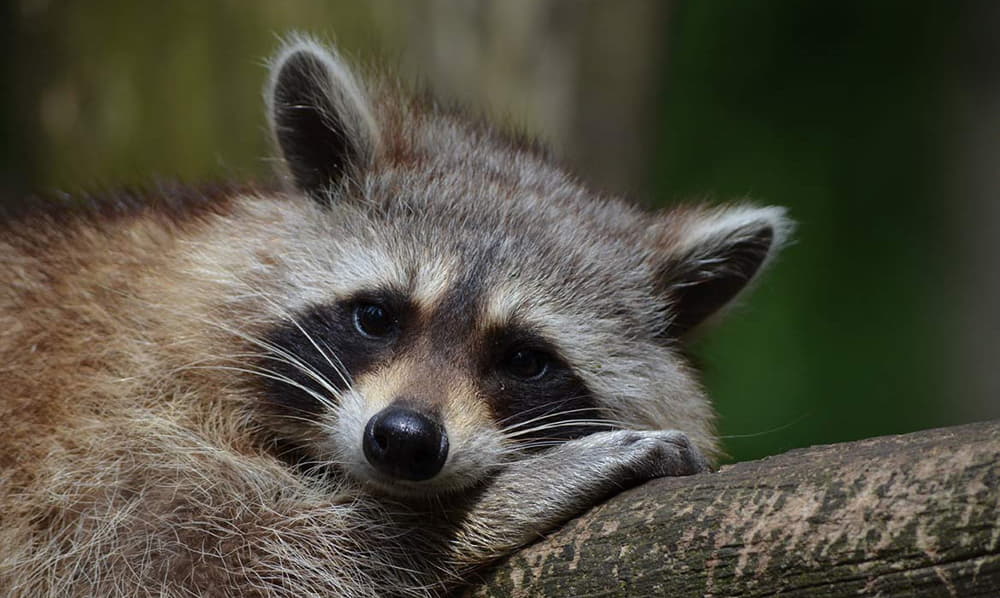Raccoon hunting season, a highly anticipated time for raccoon hunters. While some may see them as a nuisance, others see them as a challenging target for hunting. But when is raccoon hunting season? And what regulations should hunters be aware of?
Factors influencing raccoon hunting season include geographic location, local wildlife management regulations, and ecological considerations. As the weather cools, raccoons become more active, making it an opportune time for hunters to engage in this thrilling pursuit.
Each state will have specific regulations regarding the start and end dates of the hunting season set by local wildlife management agencies to ensure compliance with regulations. Knowing the perfect time to hunt raccoons and the accompanying regulations has a major impact on the success of your hunt. In this article, we will explore the dates and regulations surrounding raccoon hunting in different states.
Table of Contents
When Is Raccoon Hunting Season?
Raccoon hunting season usually begins in the fall and ends in the spring. However, there are exceptions to this rule as there are also states that allow raccoon hunting year-round. Hunters need to be aware of these dates to ensure they comply with laws and regulations.
Raccoon Hunting Season Dates In Different States
The timing of raccoon hunting season varies by state and is often regulated by state wildlife management authorities. Specific start and end dates, as well as any regulations such as bag limits or specific hunting methods, are determined at the state level.
In Texas, raccoon hunt time typically lasts from late fall to early spring, starting from October 1st to February 28th. Raccoon season for hunting in New York similarly begins in October and lasts until February. The schedule may vary slightly depending on the specific area.
In Illinois, hunting season will begin later on November 10, 2023 and end on February 15, 2024. Raccoon hunting time in Georgia also often opens in November and lasts through February.
Raccoon hunting period in Tennessee usually lasts longer from mid-September until mid-March of the following year. Raccoon hunting in Louisiana usually consists of three periods starting in November and ending in late January. Particularly, in this state there are 2 days only for hunters who are young people and veterans.

In short, the racoon season to hunt varies greatly by location. Hunters need to update and confirm times with the wildlife management department in each state to have the most accurate information.
Raccoon Hunting Regulations
There are 3 regulations that govern raccoon hunting in addition to season dates including bag limits, Hunting Methods, Licensing and Permits. These rules are in place to protect raccoons and other wildlife, as well as to safeguard hunters.
Bag Limits
Most states have bag limits for raccoons. This is the maximum number of raccoons that a hunter can kill in a day or during a season. The goal of bag limits is to keep raccoon populations healthy by preventing overhunting. Hunters need to keep track of the amount of raccoons they have killed in order to not exceed the bag limit.
Raccoon hunting is governed by wildlife conservation officials in each state and seasons thus bag restrictions will differ. In Tennessee there is a bag limit of 1 raccoon per day per hunter while in Kentucky there is no bag limit. There is also no daily bag limit for hunting or trapping raccoons in California.
Hunting Methods
Three common methods for hunting raccoons include using dogs to track and tree raccoons, using calls to attract them, and using baited traps. However, hunters need to check with their state’s wildlife agency for any restrictions on hunting methods. For example, in California, legal methods of hunting raccoons are using a trap, a firearm, bow and arrow, poison under a proper permit, or with the use of dogs.
Licensing And Permits
In order to legally hunt raccoons, hunters must obtain the necessary licenses and permits. These can usually be purchased from the state’s wildlife agency or through authorized vendors. The fees for these licenses and permits vary by state and may also depend on the type of hunting (e.g. resident vs non-resident, youth vs adult).
Some states, including Iowa, need a valid trapping or hunting license before training a coonhound to hunt. Hunters must have their licenses and permits on them at all times while hunting.
Why Do People Hunt Raccoons?
People hunt raccoons for monetary gain, fun, sustenance, sport, or just because they are a nuisance. In this section, we will go over each of these reasons in further detail.

Monetary Gains
Raccoon pelts are also precious and are frequently utilized in the production of jackets and rugs. Raccoon pelts used to sell for $30 per piece. However, in recent years, the demand for raccoon pelts has plummeted. Hunters usually hunt for raccoon pelts from November to February. They must kill a raccoon to get the pelt. This can be accomplished using a gun or by catching and killing them.
Sport
Coon hunting is also a popular sport. There are numerous tournaments in which hunters compete to see who can kill the most raccoons. In some circumstances, the weight or pelt count is determine the outcome of the winner. Raccoon hunting is a challenging pastime that has been a part of American culture for many years.
You can do it with a gun, a hunting dog, or by hand, but most hunters prefer rifles because they can take down larger species like deer and elk. Southern Michigan, Northeastern Indiana, Western Ohio, and Northwestern Pennsylvania are some of the best areas for modern coon hunting. Raccoon hunting is enjoyable because catching one of these animals is difficult. They are extremely intelligent and may outwit even the most competent hunter.
Sustenance
Hunting raccoons also provides food for humans. Raccoons are extremely adaptable animals that can be eaten in a variety of ways. Raccoon flesh can be processed into jerky, sausage, and other meat products. You can also use raccoon meat to make stew or casserole. Raccoon meat has a delicious taste like beef. Raccoon meat is high in protein and low in fat, making it a healthier option than other meats.
Because They Are A Nuisance
People often hunt raccoons because they consider them pests. While raccoons may appear cute and cuddly, they can be quite a nuisance. They frequently raid bird feeders and trash cans, resulting in costly repairs for homeowners or businesses. Raccoons can cause thousands of dollars in damage in just one night!
Raccoons can also transmit rabies and other infections, which is a major source of concern among public health professionals. Rabies is a fatal disease that can infect people and other animals. It is critical to remove raccoons from populous places in order to safeguard the public.

